Ken Kesey
Birth : 1935-09-17, La Junta, Colorado, USA
Death : 2001-11-10
History
From Wikipedia, the free encyclopedia
Kenneth Elton "Ken" Kesey (September 17, 1935 – November 10, 2001) was an American author, best known for his novel One Flew Over the Cuckoo's Nest (1962), and as a counter-cultural figure who considered himself a link between the Beat Generation of the 1950s and the hippies of the 1960s. "I was too young to be a beatnik, and too old to be a hippie," Kesey said in a 1999 interview with Robert K. Elder.
Description above from the Wikipedia article Ken Kesey, licensed under CC-BY-SA, full list of contributors on Wikipedia.
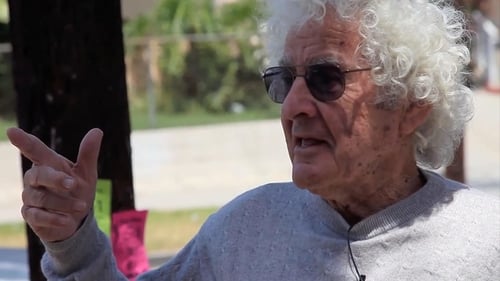
An associative view of the days, nights and characters that enclosed the life of Arthur Janov, which defines in the conclusion "It's never too late to have a happy childhood". Arthur Janov (1924-2017) was a classic instance of being the right charismatic therapist at the right time - the zeitgeist. Dr. Janov first heard about the embryo to the primal scream through one of his patients when he performed conventional psycho dynamic therapy. It was an absurd theatre performance by Raphael Montañez Ortiz called "Mommy, Daddy" presented in London, 1966. The birth of Primal therapy happened when Arthur Janov's book, "The Primal Scream" was published early 1970.

Self/Archive Footage
Ken Kesey (1935 - 2001) is one of the best-known authors to ever emerge from Oregon. He wrote his two most-acclaimed novels, One Flew Over the Cuckoo's Nest (1962) and Sometimes a Great Notion (1964), when still in his twenties. In his passing, Ken Kesey left behind plenty of good things to read. He convinced countless thousands of people to open the door to new experiences and "new ways to think." He, the Pranksters and the Bus made their own unique marks on popular culture. In this segment, we asked members of his family about his legacy.

words and recordings
A freewheeling portrait of Ken Kesey and the Merry Prankster’s fabled road trip across America in the legendary Magic Bus. In 1964, Ken Kesey, the famed author of “One Flew Over the Cuckoo’s Nest,” set off on a legendary, LSD-fuelled cross-country road trip to the New York World’s Fair. He was joined by “The Merry Band of Pranksters,” a renegade group of counterculture truth-seekers, including Neal Cassady, the American icon immortalized in Kerouac’s “On the Road,” and the driver and painter of the psychedelic Magic Bus.

Himself (archive footage)
Plant Explorer Richard Evans Schultes was a real life Indiana Jones whose discoveries of hallucinogenic plants laid the foundation for the psychedelic sixties. Now in this two hour History Channel TV Special, his former student Wade Davis, follows in his footsteps to experience the discoveries that Schultes brought to the western world. Shot around the planet, from Canada to the Amazon, we experience rarely seen native hallucinogenic ceremonies and find out the true events leading up to the Psychedelic Sixties. Featuring author/adventurer Wade Davis ("Serpent and the Rainbow"), Dr. Andrew Weil, the Grateful Dead's Bob Weir and many others, this program tells the story of the discovery of peyote, magic mushrooms and beyond: one man's little known quest to classify the Plants of the Gods. Richard Evans Schultes revolutionized science and spawned another revolution he never imagined.

Himself (archive footage)
The 1960's and 1970's were a time of change, a time of revolution, a time of the Hippies. Hippies reached across the nation and their effects are still felt today.

Himself
"Go Further" explores the idea that the single individual is the key to large-scale transformational change. The film follows actor Woody Harrelson as he takes a small group of friends on a bio-fueled bus-ride down the Pacific Coast Highway. Their goal? To show the people they encounter that there are viable alternatives.

Director
A film by Ken Kesey
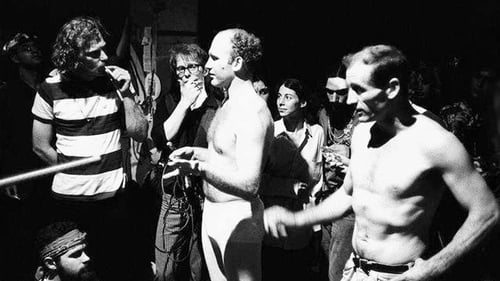
Self
A look at the life and influence of acclaimed sixties writer Ken Kesey. Features archive footage of his 1964 Magic Bus Tour with The Merry Pranksters.
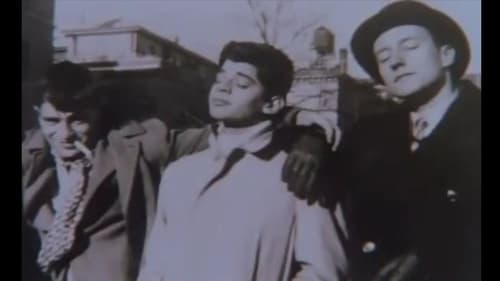
Self
Traces the Beats from Allen Ginsberg and Jack Kerouac's meeting in 1944 at Columbia University to the deaths of Ginsberg and William S. Burroughs in 1997. Three actors provide dramatic interpretations of the work of these three writers, and the film chronicles their friendships, their arrival into American consciousness, their travels, frequent parodies, Kerouac's death, and Ginsberg's politicization. Their movement connects with bebop, John Cage's music, abstract expressionism, and living theater. In recent interviews, Ginsberg, Burroughs, Kesey, Ferlinghetti, Mailer, Jerry Garcia, Tom Hayden, Gary Snyder, Ed Sanders, and others measure the Beats' meaning and impact.

Himself
Behind the scenes interviews for One Flew Over the Cuckoo's Nest

Narrator
Pre embodied the spirit of athletic excellence. He had a belief in self and sport that transcended all but the outer reaches of human speed and endurance. As a freshman, he appeared on the cover of Sports Illustrated, which hailed him as "America's Distance Prodigy". By the time he died in a tragic auto accident at the age of 24, Pre held all 7 American records between 2,000 and 10,000 meters. Off the track, he fought relentlessly for the rights of amateur athletes to prosper for their sacrifices. Narrated by Ken Kesey, Fire On the Track is the story of this young lion's life, as told through rare footage and the memories of those who knew him best - his teammates, coaches, family and friends. Interviews include David Bedford, Frank Shorter, Ian Stewart, Bill Bowerman, Jeff Galloway, Dick Buerkle, Lasse Viren, Dana Carvey, Mac Wilkins, Kenny Moore, Dave Wottle, Alberto Salazar, and many more.
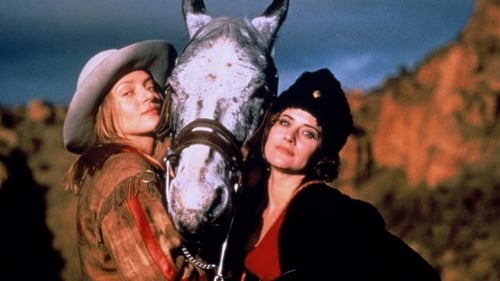
Sissy's Daddy
Sissy Hankshaw is born with enormous thumbs that help her hitchhiking through the US from a young age. She becomes a model in advertising and her NY agent 'the Countess' sends her to his ranch in CA to shoot a commercial, set against the background of mating whooping cranes. There, she befriends Bonanza Jellybean, one of the cowgirls at the beauty- ranch.

Himself
This refreshingly frank and impartial study of the discovery and development of the notorious hallucinogenic drug is notably free of moral judgmental, and features contributions from such legendary heroes of psychedelia as Albert Hoffman - the Swiss scientist who discovered the drug - Aldous Huxley - author of 'The Doors of Perception' - Ken Kesey - author of 'One Flew Over the Cuckoo's Nest.

Writer
"Conditions" - The improvisation-based performance was inspired by psychiatrists such as RD Laing (Family and Madness) and J. Foudraine (Who is of wood). The Werkteater played this performance 'in the den of the lion': in psychiatric institutions for patients and carers. This led to very intensive and adventurous performances in which 'a lot' always happened. Afterwards the discussions sometimes ran high, but even during the performance the audience sometimes mixed themselves in the scenes.

Self
Made in 1976, TVTV's close-up look at Hollywood's annual awards ritual mixes irreverent documentary with deadpan comedy. TVTV's cameras go behind the scenes to follow major Hollywood figures (including Steven Spielberg, Michael Douglas, Lee Grant, Jack Nicholson, and many others), capturing them in candid moments—inside their limousines, dressing for the ceremony, backstage at the awards.
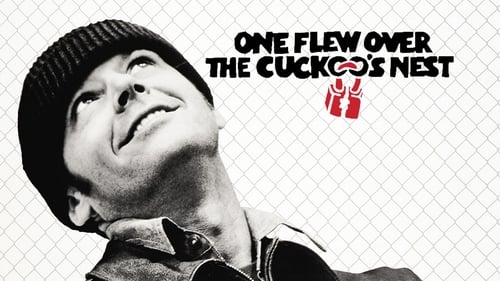
Novel
A petty criminal fakes insanity to serve his sentence in a mental ward rather than prison. He soon finds himself as a leader to the other patients—and an enemy to the cruel, domineering nurse who runs the ward.
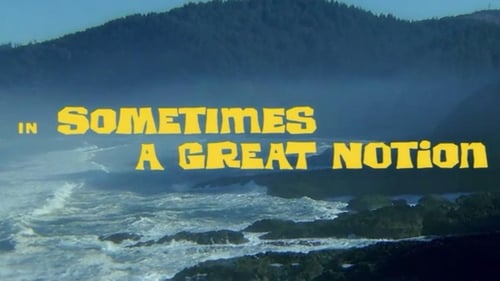
Novel
Hank Stamper and his father, Henry, own and operate the family business by cutting and shipping logs in Oregon. The town is furious when they continue working despite the town going broke and the other loggers go on strike ordering the Stampers to stop, however Hank continues to push his family on cutting more trees. Hank's wife wishes he would stop and hopes that they can spend more time together. When Hank's half brother Leland comes to work for them, more trouble starts.

Director
Sound and image captured by the Merry Pranksters in late 1965 and early 1966: the bus on the road, the Grateful Dead playing an Acid Test, Kool-Aid ritual, etc.

Sound and image captured by the Merry Pranksters in late 1965 and early 1966: the bus on the road, the Grateful Dead playing an Acid Test, Kool-Aid ritual, etc.






